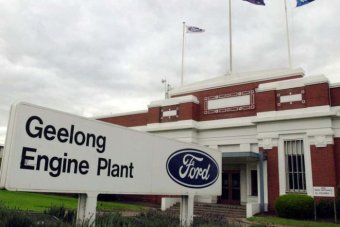MORE than 70 Ford workers are licking their wounds today as they’re told they’re no longer wanted by the company at its North Geelong plant.
All up, 199 Ford workers and the auto-makers Geelong and Broadmeadows plants are being sacked. Another 83 jobs have already gone to voluntary redundancy or redeployment packages.
All up, around 120 Geelong manufacturing jobs have been but the majority of the redeployment jobs, the precise number is unclear, have been to the Geelong plant’s production and development facility.
The total 282 jobs mark the early dismissal of production jobs Ford has signalled will end in 2016 as it restructures its Australian operations to research and development.
Ford staff told the Independent most sacked workers had accepted today’s news “pretty well”.
AMWU vehicle division spokesman David Smith said the one-on-one notification Ford was giving workers of their job status made it “very, very difficult to speak to anyone”.
“But one my members was extremely disappointed,” he said.
“He was only three months short of 30 years service with the company and didn’t think he’d be on the list.”
Mr Smith said the union had been working closely with Ford to try support workers. Meetings would be convened at Geelong and Broadmeadow and Monday to provide support information
“We will encourage to people sign with the outplacement agents, as part of this service they will have people on the ground actively looking for jobs in workforce.”
Ford spokesman Wes Sherwood said that after all the separations expected this year Ford would retain around 350 manufacturing workers at Geelong and 450 at Broadmeadows.
Its design and engineering complement would stabilise around 1100 and another 400 professional roles, including hiring in marketing and sales for a new product range over coming years, would lift this figure to around 1500 after manufacturing stopped.
Mr Sherwood said Ford had invested $10 million with the Federal Government’s Innovation Fund which was being utilised by some 15 companies committed to generating more than 500 jobs in the area.
“We’re pleased at the progress helping employees transition,” he said.
“It’s obviously been very difficult but we’ve been committed to helping their future.”
— NOEL MURPHY









